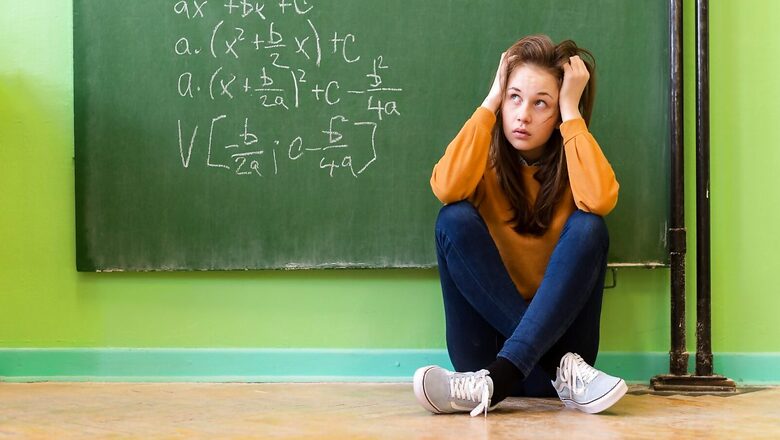
views
Life is filled with evaluations. Evaluations take the form of exams and there’s no end to it since we start our education. Be it a class test, a term exam, final grades, college entrance or professional qualifiers – the word “exam” is invariably coupled with “results” and related expectations.
Be it a concrete paper-pen examination or abstract testing situation of life – results cannot always be as expected. Here comes a distinct “expectation – reality mismatch” and disappointment.
This disappointment is a source of major stress and distress in schooling years, and affects the mental health and wellbeing of teens, and tweens. The situation is often made more complex by the inflexible education system, constant cut-throat competition for grades, and family’s expectations burdened on the candidate.
Let’s look at a few narratives.
Sudeshna, 14 years old never really liked mathematics. It was her Class 9 exams and she felt unprepared, irrespective of classes and tutions. Her parents were, however, very particular about science and maths subjects – themselves being from the same background. With a fear of disappointing results, Sudeshna started avoiding schools and eventually exams. She was no more interested in playing, going out, or enjoying pizzas. Eventually, after the exams – she lost interest in other subjects as well.
Mohan, 22 years old, was preparing for medical entrance tests. He was quite confident to get a seat of his choice but somehow the test format didn’t sync well. After the results, he started being scorned by his friends and relatives while his family was convinced that the medical profession was not his cup of tea. Mohan couldn’t think of giving up his career dream of becoming a physician and reluctantly joined a degree college. His grades dropped and his “initial disappointment” never really left him. He couldn’t gather the courage to face medical entrances anymore.
Rohini was in Class 7 and she was preparing for Science Olympiad. This was at the behest of her parents who didn’t want their only daughter to falter in the subject. She had just finished her final exams and really wanted to take rest. The vacation was spent in tough preparations and finally, it didn’t go as well as she thought. Her parents displaced their disappointment in her irrespective of the fact that she stood second in her class. She was sad, tearful, and developed recurrent attacks of fainting and giddiness due to the chronic stress.
These scenarios are not uncommon.
Education is not only based on degrees but also on personal growth and self-development. The latter gets threatened by results disappointment.
The craze and competition for “good results” enhance the perceived threat of examinations. Added to that is the rat race for the best institutions and degrees. Education is not only based on degrees but also on personal growth and self-development. The latter gets threatened by results disappointment.
The changing pandemic scenario
The last two years of the COVID pandemic have added fuel to fire. Online education, recurrent school closures, employment uncertainties, postponement of exams, changing exam formats, and emerging education policies have led to further ambiguities and stress. Many children are yet to adapt to the online examination system with limited digital literacy while in many schools/colleges, virtual exams have basically turned into an open-book farce!
These challenges are to stay as we still battle the pandemic. With limited admissions, timeline changes in academics, and entrances changed/postponed – education uncertainties have further engulfed exam stress. Apprehension and disappointment with results can further add to mental stress in such trying times.
Disappointment with exams can have several adverse psychological and social consequences. It can lead to depression, anxiety, guilt, limited social interaction, attention deficits, absenteeism from schools/colleges, and sleep disturbances.




















Comments
0 comment